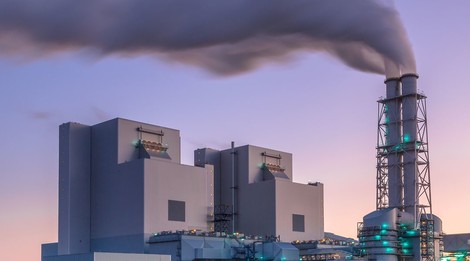Your podcast discovery platform
Curious minds select the most fascinating podcasts from around the world. Discover hand-piqd audio recommendations on your favorite topics.

piqer for: Climate and Environment Global finds Globalization and politics
I'm a freelance journalist, currently based in Madrid. I used to be a News Producer at CNBC in London before, but I thought a little bit more sun might do me good. Now I write for several news organizations, covering a range of topics, from Spanish politics and human rights for Deutsche Welle to climate change for La Marea.
Nobody's Talking About The Technology That Could Save Us From Climate Change
Even if humans dramatically cut down greenhouse gas emissions, Earth is on a warming path that wouldn't reverse for decades. Maybe centuries. There's already a lot of CO2 in the atmosphere, and much more of it in the oceans, and feedback loops already kicked in, such as the icecap melt and desertification.
So how come we're still so optimistic about climate change? Can we really stop it? Are we still in time to save our climate?
The answer is yes. But it's not going to be easy.
You see, in order to have a reasonable chance of hitting the 2C target, modeling shows that humanity must go carbon negative in the mid- to late 21st century.
We are going to need something else, if we want to remain below catastrophic global warming. We have to capture the carbon that's already in the atmosphere. But how? And why is nobody talking about it? That's exactly what this article is about.
David Roberts introduces BECCS (Bioenergy with Carbon Capture and Sequestration), a technology that takes advantage of the ability of plants to capture carbon as they grow and current carbon sequestration technology. In a typical Vox style, the author explains complex concepts in an astoundingly simple way:
The idea is that as plants grow, they absorb carbon from the air. When biomass is burned for energy, that carbon is released. If you can capture that released carbon and bury it, you have a net carbon negative process — carbon is removed from the atmosphere.
The difficulties of a successful BECCS implementation are huge, as the area needed for harvesting, burning and sequestering. The chances that we make it through BECCS are slim. Still, it should be in the cards, so why isn't it?
The article goes through the legal, financial and diplomatic hurdles that a such a planetary-scale project would have to save. It does so with simple explanations but high accuracy, and with plenty of sources to keep reading if that's your wish.
A realistic article, based on fact, that brings real hope to optimists like me.
Stay up to date – with a newsletter from your channel on Climate and Environment.

good primer, santi! thanks for the piq. worth spreading!